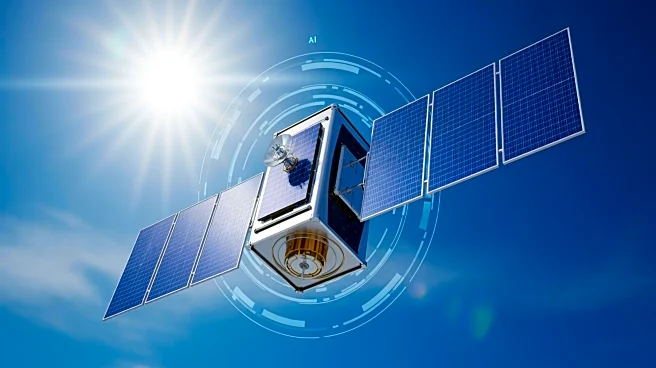What's Happening?
Elon Musk, CEO of SpaceX, has proposed the use of a solar-powered AI satellite constellation to manage the amount of solar energy reaching Earth. This concept, known as solar radiation management (SRM),
aims to counteract the effects of climate change by making minor adjustments to the sunlight that reaches the planet. Musk shared his thoughts on the platform X, suggesting that these adjustments could prevent both global warming and cooling. While the idea of SRM is not new, Musk's involvement brings significant attention to the concept. The specifics of how this technology would ensure precise and equitable adjustments, such as seasonal changes, remain unclear. Musk's comments have sparked discussions about the feasibility and implications of such a technology.
Why It's Important?
The proposal by Elon Musk highlights a growing interest in innovative solutions to combat climate change. If successful, solar radiation management could offer a way to control Earth's climate, potentially reducing the impact of global warming. This could have significant implications for environmental policy and the future of climate change mitigation strategies. However, the concept also raises concerns about the potential risks and ethical considerations of manipulating natural systems. The involvement of a high-profile figure like Musk could accelerate research and development in this area, influencing both public and private sector approaches to climate change.
What's Next?
The next steps for this proposal would likely involve further research and development to assess the feasibility and safety of implementing solar radiation management on a large scale. Stakeholders, including environmental scientists, policymakers, and the public, may engage in discussions about the potential benefits and risks. Regulatory frameworks and international agreements might be necessary to govern the use of such technology, ensuring it is used responsibly and equitably. The scientific community may also explore alternative climate change solutions alongside SRM to provide a comprehensive approach to environmental challenges.
Beyond the Headlines
The concept of solar radiation management raises deeper questions about humanity's role in altering natural systems. Ethical considerations include the potential for unintended consequences and the moral implications of controlling the planet's climate. There is also the risk of geopolitical tensions if countries disagree on the implementation or effects of such technology. Long-term, this could lead to shifts in how societies view and interact with the environment, potentially redefining the relationship between technology and nature.











